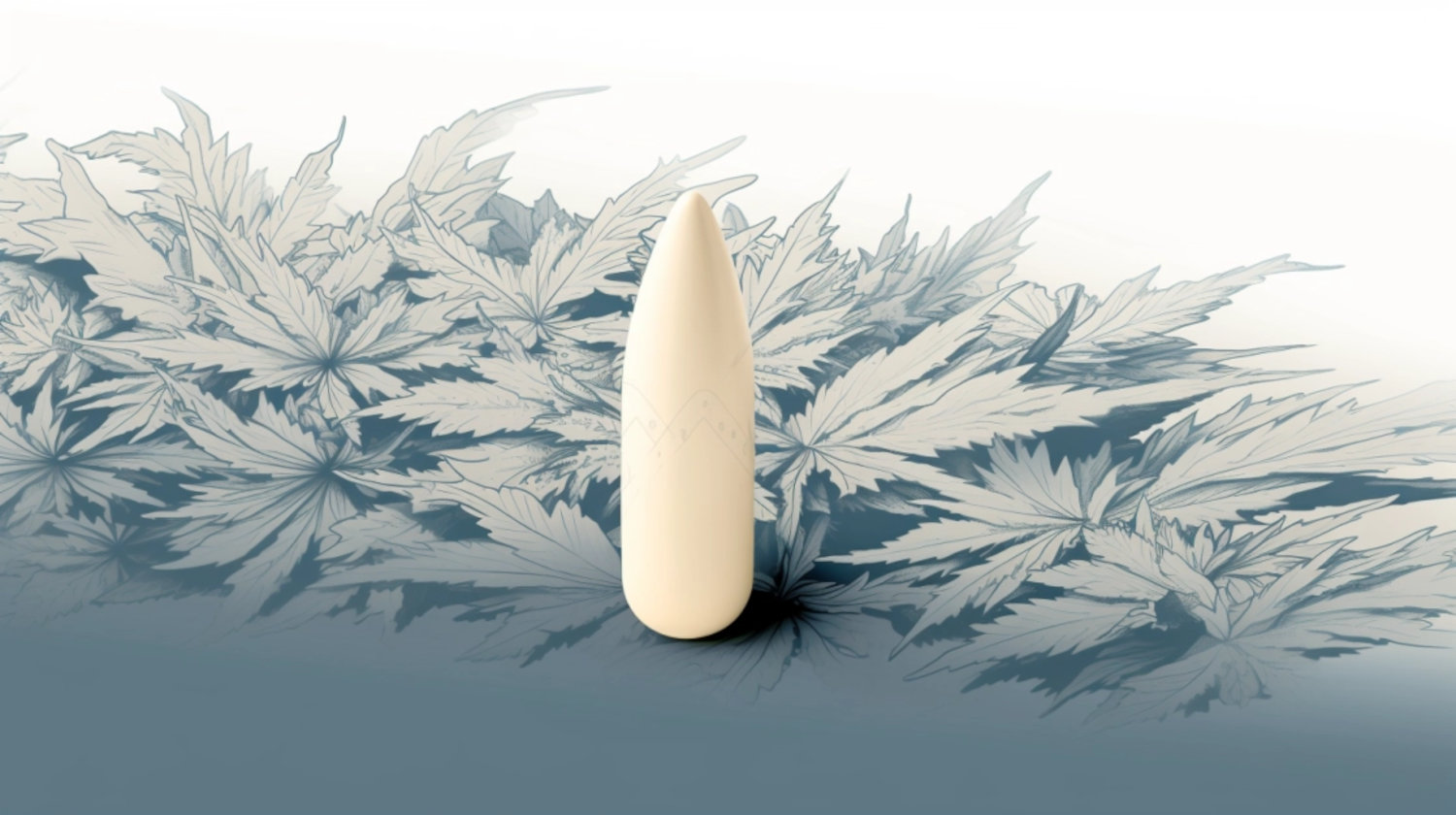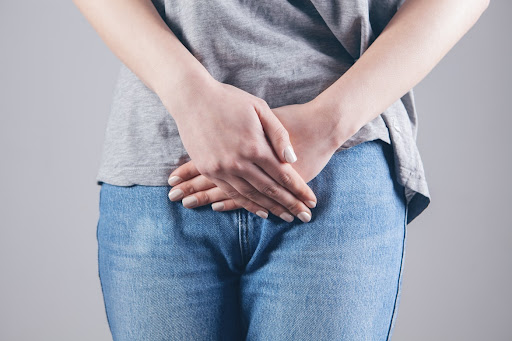Optimum feminine health and self-care go hand-in-hand. Cannabis — a powerhouse plant — may positively contribute to vaginal health, too. CBD tampons may offer a generous dose of relief from many of the common symptoms of menstrual cramps, including aches and pelvic cramping.
A survey published in the Journal of the American Medical Association revealed that CBD use flourished 50% over the past four years; one in five survey respondents reportedly used the cannabinoid within the past year.1 Statistics published in 2024 by Forbes suggest that 60% of women consume CBD products.
Can a CBD tampon really help with common period symptoms? And how does CBD help with period cramps?
Does CBD Help With Period Cramps?
Existing research illustrates that CBD can help with pain and inflammation. While there is minimal evidence confirming the cannabis compound’s suitability as an aid specifically for menstrual cramps, there isn't solid evidence against the use of CBD tampons for dysmenorrhea, either.
Among the brands available in the legal market, the CBD-infused CBD tampon from Daye® dominates the field. Safety and efficacy reports are minimal, but users tout the company's products as an aid for menstrual cramps and pain. Products like this cannot be labeled as a cure or medicine for dysmenorrhea, but they are often marketed in a beneficial light. The CBD tampon from Daye® is specially formulated to target pain signals — which become more active during the menstruation cycle — located in the pelvic region.2
A recent study published by the founders of Daye® in the Journal of Endometriosis and Uterine Disorders found that, “Vaginal delivery of CBD infused into a tampon as an alternative method of pain relief and suggested an efficacy profile of a CBD-infused tampon.” The team of researchers observed that participants experienced “a statistically significant reduction in pain on the second day of the first month, and the first and second days of the third month,” which they attributed to the CBD present in the tampon.3
Anecdotal reports paint a similar picture. Due to the uncontrolled release of CBD, it is uncertain whether CBD specifically fixes on the uterus as a pain driver for menstrual cramps. The absence of scientific studies on CBD for menstrual cramps highlights the importance of implementing focused clinical trials to ensure broader patient access to the worldwide market. To be considered a reliable form of long-term pain relief for menstrual discomfort, scientists must focus on patient feedback for the controlled and modified release of CBD.
What are CBD Tampons?

Vaginal health is key to a fruitful life for people who menstruate. Dedicating time to maintain vaginal health can influence fertility, sexual desire, and a person’s ability to reach climax. Ignoring a vaginal health issue can have a direct effect on self-confidence, self-esteem, and overall health. CBD tampons may be a great alternative for natural and discreet relief from menstrual symptoms.
Compared to traditional anti-inflammatory drugs, these cannabinoid-laden insertables have been reported to have minimal side effects (if any) while granting the user pain relief on par with some of the most effective medications out there. Although they cannot be considered a cure for dysmenorrhea, users are soaking up the benefits of CBD tampons, with many even making the switch from conventional options to cannabis.
Similar to traditional tampons, CBD tampons sit in the vaginal canal and swell as they absorb liquid. What makes them unique to traditional tampons is that not only can they absorb, but they can also release therapeutic compounds for absorption into the bloodstream. As a reasonably new entry to the market, it is still being determined whether or not CBD tampons directly target uterine pain by delivering localized relief or via general bloodstream absorption.
Product design depends on the specific brand and manufacturer, but generally, the production process for CBD tampons comprises a (proprietary) cannabinoid formulation that is not limited to CBD. Traces of other active plant compounds like CBA, CBG, and terpenes may be present, but there is typically zero THC. To ensure that absolutely no THC is present, many CBD tampon manufacturers will derive the CBD from the hemp variety rather than high-THC cannabis. Cannabinoid extracts undergo lab testing for potency and to rule out contamination. The concentration of CBD may vary depending on the supplier.
The existing research into Daye® CBD tampons indicates that they are non-toxic and safe for vaginal use. Ingredients are carefully chosen to ensure they do not disrupt vaginal microbiome or pH level imbalances. Highly absorbent, organic, and sustainable, these pharmaceutical-grade products may help ease inflammation, uterine contractions, and discomfort caused by period cramps. The Daye® CBD tampon is specially formulated to contain a specific amount of the plant's primary active non-psychotropic cannabinoid.
Feminine hygiene and health products that are infused with CBD oil, such as the CBD tampon from Daye®, are sanitized and made with 100% organic fibers. They are also GMP and ISO1384 certified. If considering an alternative brand, seek out a supplier of CBD tampons who follow similar practices to ensure paramount quality.
How Do CBD Tampons Work?

Before you can decide whether or not CBD tampons are suitable for you, make yourself aware of the ways in which CBD tampons provide relief from common menstruation symptoms.
A research report published in Cannabis and Cannabinoids Research found that, “CB1 receptors are highly expressed in the uterus, as well as in multiple non-reproductive tissues. The CB2 receptors are preferentially expressed abundantly in the immune system, intestines, and other tissues such as the lungs, uterus, pancreas, and skin.” This signifies the connection between feminine health and cannabis use.
Furthermore, the report highlights the presence of anandamide (AEA) in the reproductive tract fluids, including ovarian fluids. AEA is critical in numerous reproductive mechanisms, including folliculogenesis, preovulatory follicle maturation, oocyte maturation, and ovulation. Researchers note that, “Levels of expression of CB1 and CB2 are variable during the menstrual cycle.” Upon analysis of the connection between the levels and symptoms of endometriosis-associated pain, the team found a significant surge in blood levels of endocannabinoids and decreased local CB1 expression in individuals with endometriosis compared to individuals without.
Endometriosis patients often suffer from CPP, dysmenorrhea, and dyspareunia. The authors measured endocannabinoid ligands in individuals who reported the most common symptoms of endometriosis-associated pain. They also found that individuals with moderate-to-severe dysmenorrhea and moderate-to-severe dyspareunia had an increase in both the AEA and N-palmitoylethanolamine (PEA) levels, respectively. The researchers postulated that endometriosis could be a result of endocannabinoid deficiency. The team also noted that condition, thereby partially explaining its implication with pain.”4
Separate research supports the connection between the endocannabinoid system and reproductive health. Research states that CB1, CB2, and TRPV receptors are found within the human myometrial tissue.
Despite the absence of research in this area, the CB1 receptor has been found to play an important role in myometrium relaxation. Research pinpoints the endocannabinoid system’s role in myometrial contractility during menstruation, with researchers finding that cannabinoid agonists such as THC can prompt myometrial relaxation. Consequently, this might relieve dysmenorrhoea pain.
Based on a systematic review, there is already a large population of individuals with a uterus that use cannabis-based products for medicinal use as a treatment for various other gynecological disorders, such as chronic pelvic pain, endometriosis, gynecology cancer-related pain, and vulvodynia. The majority of individuals from the review reported a decrease in pain scores, suggesting that CBD may harbor promise for the management of dysmenorrhoea.5
Benefits of CBD Tampons

Every person's biochemistry is unique, so the benefits of a CBD tampon may differ based on personal experience. If we take the limited research we have and anecdotal reports into account, we can see that CBD tampons are generally well-tolerated and have minimal side effects.
A research report stated that CBD-infused tampons reduced pain significantly during the first month of use and more so in the following two to three months of use. On top of this, the researchers were pleasantly surprised upon observing a consistent ascension in pain relief over the course of each menstrual cycle.
The research is not as straightforward as it might be for other types of CBD products, mainly due to the freshness of the CBD and hemp tampon market. However, this area is likely to undergo evolution, and more benefits are likely to surface in the foreseeable future.
Risks and Drawbacks of CBD Tampons
CBD tampons are still new to the market, so there's little insight into the potential risks and drawbacks. Nonetheless, just like any other type of CBD product, CBD tampons may be exposed to contaminants if unreputable and unlicensed companies produce them.
A report published in the Journal of Food Chem Toxicology emphasizes the importance of quality control and analysis of product composition. Since the Cannabis sativa plants contain more than 100 unique cannabinoids, most products (unless they are made using CBD isolate) will contain traces of other compounds. While many may be therapeutic, their presence may alter the overall experience, so it's important to be aware before buying.
Analytical testing for contaminants is standard procedure for most CBD product distributors and manufacturers nowadays, primarily focusing on detecting heavy metals and pesticides. Manufacturing and labeling are essential, but a recent study found that only a third of CBD products were properly evaluated and labeled for quality purposes. This can pose a health risk to individuals who may find CBD tampons from less reputable brands that don’t do proper testing analysis to ensure product safety.6
Some individuals who used CBD-infused tampons for menstruation symptomatic relief experienced vertigo on “the initial day of each menstrual cycle post tampon usage.” At the same time, a different user said that she also experienced minor discomfort and itching “unrelated to the CBD-infused tampons.” Fortunately, the effects disappeared swiftly “without need for medical attention after removal of the CBD-tampon.”
Choosing the Right CBD Tampons
Spending some time to find CBD tampons that are sourced from reliable avenues will serve you well in the long run. Focus on finding well-established brands featuring positive testimonials, like Daye, the only brand in the market that has researched and developed its CBD tampons. Make sure to pay attention to the cannabinoid levels and the presence of other compounds.
Is it broad-spectrum, full-spectrum, or isolated CBD? Isolate is typically pure CBD, whereas other forms of CBD may contain other plant elements, including flavonoids, terpenes, and cannabinoids like THC, CBG, and CBN. The presence of other compounds may promote “the entourage effect,” potentially amplifying the effects of CBD on menstrual cramps.
Due to the varying ways CBD is regulated across the US, the regulations for CBD-infused cosmetics and intimate care products may differ from those created for medical purposes. As of now, there are no FDA-approved CBD tampons. In addition, it is important not to confuse hemp tampons with CBD tampons. Hemp tampons do not contain CBD; instead, they are simply made with hemp plant fibers from the stalk.
References
- Wilson-Poe AR, Smith T, Elliott MR, Kruger DJ, Boehnke KF. Past-Year Use Prevalence of Cannabidiol, Cannabigerol, Cannabinol, and Δ8-Tetrahydrocannabinol Among US Adults. JAMA Netw Open. 2023;6(12):e2347373. Published 2023 Dec 1. doi:10.1001/jamanetworkopen.2023.47373 ↩︎
- Seifalian A, Kenyon J, Khullar V. Dysmenorrhoea: Can Medicinal Cannabis Bring New Hope for a Collective Group of Women Suffering in Pain, Globally? International Journal of Molecular Sciences. 2022; 23(24):16201. https://doi.org/10.3390/ijms232416201 ↩︎
- Milanova V, Mihaylova K, Lazarova I, Georgieva T, Baxter H, Dobreva D. Efficacy and Usability of a Cannabidiol-Infused Tampon for the Relief of Primary Dysmenorrhea. Journal of Endometriosis and Uterine Disorders. 2024;5. doi:https://doi.org/10.1016/j.jeud.2023.100057 ↩︎
- Bouaziz J, Bar On A, Seidman DS, Soriano D. The Clinical Significance of Endocannabinoids in Endometriosis Pain Management. Cannabis Cannabinoid Res. 2017;2(1):72-80. Published 2017 Apr 1. doi:10.1089/can.2016.0035 ↩︎
- Liang AL, Gingher EL, Coleman JS. Medical Cannabis for Gynecologic Pain Conditions: A Systematic Review. Obstet Gynecol. 2022;139(2):287-296. doi:10.1097/AOG.0000000000004656 ↩︎
- Li J, Carvajal R, Bruner L, Kaminski NE. The current understanding of the benefits, safety, and regulation of cannabidiol in consumer products. Food Chem Toxicol. 2021;157:112600. doi:10.1016/j.fct.2021.112600 ↩︎
The information in this article and any included images or charts are for educational purposes only. This information is neither a substitute for, nor does it replace, professional legal advice or medical advice, diagnosis, or treatment. If you have any concerns or questions about laws, regulations, or your health, you should always consult with an attorney, physician or other licensed professional.




